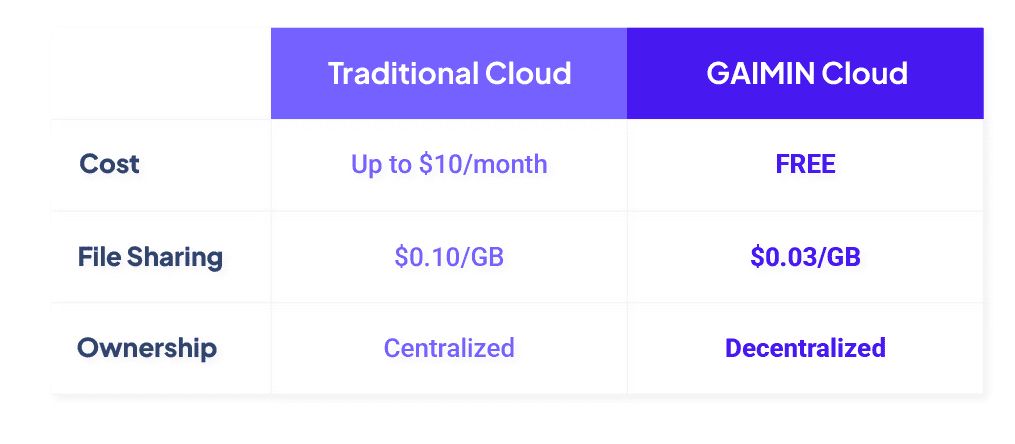The digital landscape is facing increasing pressure from escalating bandwidth demands, rising costs, and environmental concerns related to traditional centralized cloud infrastructure. Delivering video streams, game patches, and AI models through conventional data centers and networks results in latency, high expenses, and a substantial carbon footprint. Decentralized physical infrastructure networks (DePINs) are emerging as a promising solution to address these challenges.
The Rise of DePINs and Decentralized File Sharing
DePINs represent a paradigm shift in how we approach data storage and delivery. By fragmenting files into encrypted shards and distributing them across geographically diverse nodes, these peer-to-peer (P2P) networks aim to:
- Reduce Transit Fees: Move data closer to users, minimizing long-distance transfers.
- Improve Regional Speeds: Leverage local resources for faster content delivery.
- Minimize Carbon Footprint: Utilize existing and underutilized computing power, reducing the need for energy-intensive data centers.
However, early decentralized networks often struggle with:
- Unpredictable Latency: Inconsistent network performance can lead to delays.
- Limited Uptime: Node availability can be unreliable, impacting content accessibility.
- Economic Viability: Incentive structures may not adequately reward node operators, hindering participation.
These limitations have prevented decentralized file sharing from fully supporting data-intensive applications like DApps, AI pipelines, and large user bases.
GAIMIN Cloud: Bridging the Gap
GAIMIN is a decentralized computing platform that harnesses the power of idle gamer hardware to create a more efficient and sustainable file-sharing solution. Their GAIMIN Cloud platform addresses the challenges of traditional decentralized networks by:

- Leveraging a Global Network: Utilizing hundreds of thousands of high-performance gamer PCs worldwide for distributed file storage and delivery.
- Intelligent Node Selection: Automatically choosing nodes based on proximity and performance metrics for optimal edge performance and minimal latency.
- Reduced Reliance on Centralized Infrastructure: Significantly cutting costs and improving speed by using existing hardware.

Incentivizing Quality and Consistency with GMRX
GAIMIN’s incentive model, powered by the GMRX token, ensures high uptime, responsiveness, and reliability. Nodes are rewarded for maintaining these standards, guaranteeing consistent resource availability. This addresses a critical barrier to adoption that has previously hindered decentralized approaches.
Continuous monitoring of network health allows for dynamic optimization, routing data to the best-performing nodes in real-time. This intelligent routing significantly reduces file distribution costs, making it ideal for:
- Gaming
- Media Streaming
- AI Model Distribution
Real-World Results and Proven Impact
GAIMIN’s decentralized network has already demonstrated tangible benefits, with users experiencing:
- Significant Cost Savings: Thousands of dollars saved in bandwidth and hosting expenses.
- Enhanced Regional Download Speeds: Improved content delivery in underserved markets.
The GAIMIN File Sharing API allows developers to easily integrate GAIMIN Cloud into their DApps, games, and SaaS platforms, automating file distribution and further simplifying adoption.
A Sustainable Future for Digital Infrastructure
GAIMIN is committed to building a more sustainable digital infrastructure. By utilizing existing gaming hardware, the platform reduces the need for new data centers, minimizing environmental impact. GAIMIN Cloud contributes to a greener internet, offering a cost-effective and performant solution.
GAIMIN envisions decentralized infrastructure as the foundation of the future internet, anticipating the continued exponential growth of data and digital content. By optimizing performance and decentralization, GAIMIN Cloud aims to be a key component in building a fast, affordable, and truly decentralized digital ecosystem.
In conclusion, GAIMIN Cloud offers a viable solution for efficient and sustainable file sharing by leveraging Web3 principles and incentivizing gamers to contribute computing power for file distribution. This approach benefits content creators, consumers, and the environment.